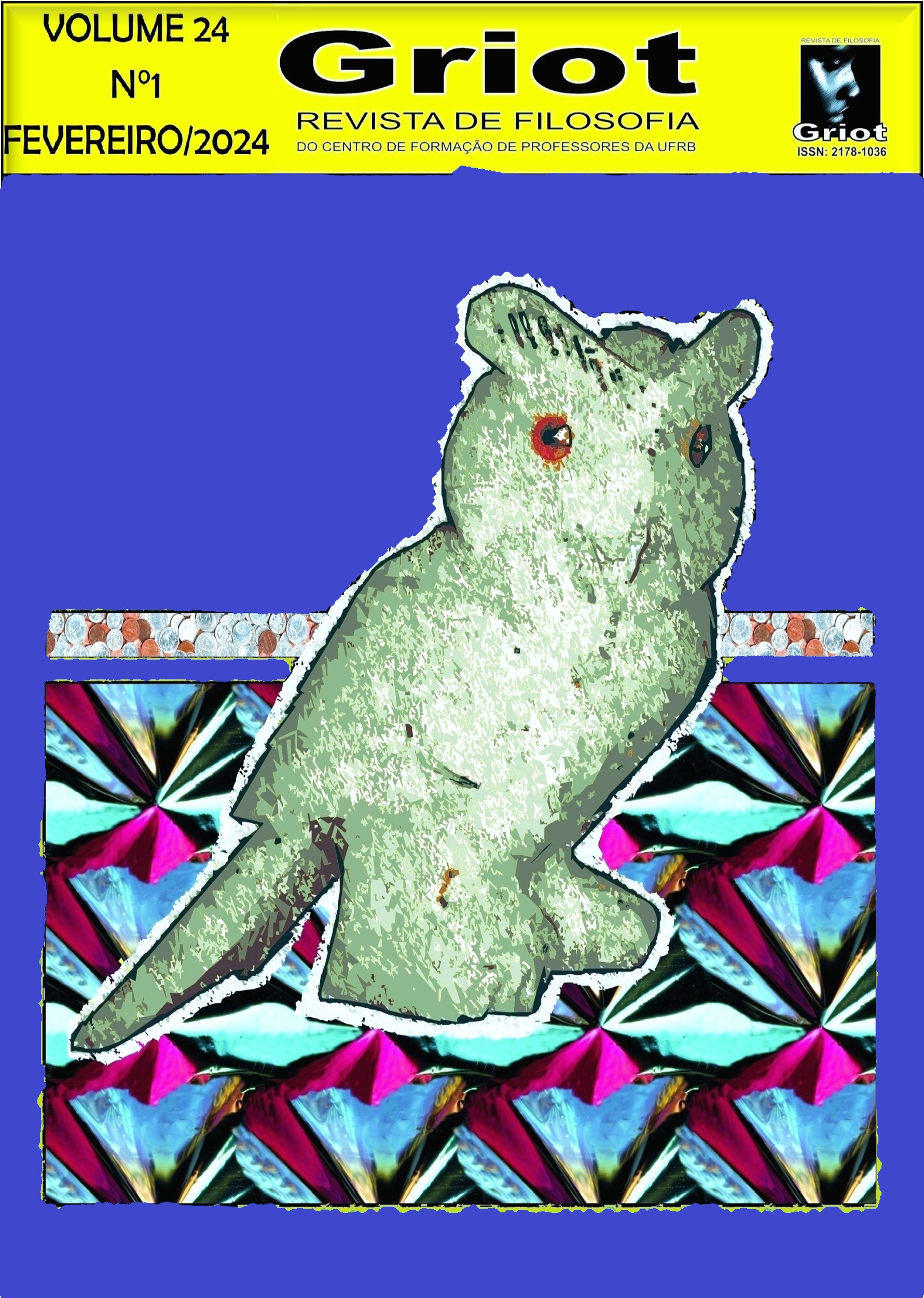Hobbesian pessimism or Schopenhauerian mechanism: the construction of the individual in Thomas Hobbes and Arthur Schopenhauer
DOI:
https://doi.org/10.31977/grirfi.v24i1.3583Keywords:
Schopenhauer; Hobbes; Pessimism.Abstract
It is rare that we have Arthur Schopenhauer and Thomas Hobbes in the same publication, and when this occurs, it is usually aimed at exploring their dissenting political views. However, this study is based on the belief that both philosophers have significant similarities in their theories about the creation of the individual as a human being. Schopenhauer and Hobbes have, in their constructions, the pessimistic view of human nature and, furthermore, there are prominent similarities in the construction of the human machinery, similarities that at times appear to merge. The goals that Hobbes and Schopenhauer had when they wrote their works were different, however, what we show in this study is that pessimism is a prolific path for philosophical theory.
Downloads
References
ABBAGNANO, Nicola. Dicionário de Filosofia. Tradução: Ivone Castilho Benedetti. 6. ed. São Paulo, 2012.
DEBONA, Vilmar. A outra face do pessimismo: caráter, ação e sabedoria de vida em schopenhauer. São Paulo: Edições Loyola, 2020.
DEBONA, Vilmar. Schopenhauer. São Paulo: Ideias & Letras, 2019.
HOBBES, Thomas. Do cidadão. Tradução: Renato Janine Ribeiro. 3. ed. São Paulo: Martins Fontes, 2002.
HOBBES, Thomas. Do corpo. Parte 1. Cálculo ou lógica. Tradução: Maria Isabel Limongi e Viviane de Moreira. Campinas: Unicamp, 2009.
HOBBES, Thomas. Leviatã: Ou a Matéria, Forma e Poder de Um Estado Eclesiástico e Civil. Tradução: Rosina D’Angina. 3. ed. São Paulo: Ícone, 2014.
HOBBES, Thomas. Os elementos da lei natural e política. Tradução: Bruno Simões. São Paulo: Martins Fontes, 2010.
LIMONGI, Maria Isabel. O homem excêntrico: paixões e virtudes em Thomas Hobbes. São Paulo: Loyola, 2009.
MENDONÇA, Marinella Morgana. O papel do corpo no pensamento ético de Schopenhauer. Voluntas: Revista Internacional de Filosofia, v. 10, n. 1, p. 110-123, abr. 2019. DOI: http://dx.doi.org/10.5902/2179378636652. Acesso em: 7 abr. 2023.
SCHOPENHAUER, Arthur. O mundo como vontade e como representação, I tomo. Tradução, apresentação, notas e índices: Jair Barboza. São Paulo: Editora UNESP, 2005.
SCHOPENHAUER, Arthur. O mundo como vontade e como representação, II tomo: Suplementos aos quatro livros do primeiro tomo. Tradução, apresentação, notas e índices: Jair Barboza. São Paulo: Editora UNESP, 2015.
SCHOPENHAUER, Arthur. Sobre o fundamento da moral. 2. ed. Tradução: Maria Lúcia Mello Oliveira Cacciola. São Paulo: Martins Fontes, 2001.
Downloads
Published
How to Cite
Issue
Section
License
Copyright (c) 2024 Patricia Costa da Silva Baehr

This work is licensed under a Creative Commons Attribution 4.0 International License.
The authors who publish in Griot: Revista de Filosofia maintain the copyright and grant the magazine the right of first publication, with the work simultaneously licensed under the Creative Commons Attribution 4.0 International License, allowing sharing and adaptation, even for commercial purposes, with due recognition of authorship and initial publication in this journal. Read more...









































































